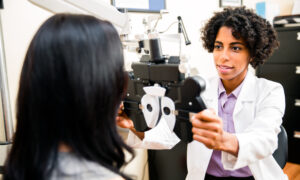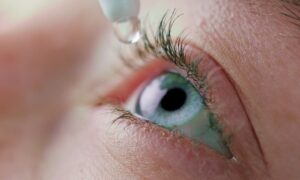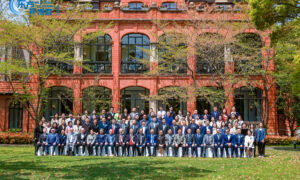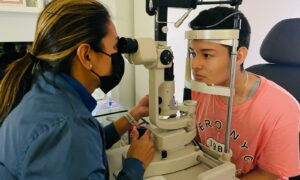June 12, 2020
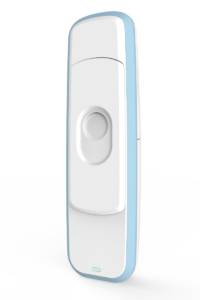
Eyenovia’s Optejet
The clinical-stage ophthalmic biopharmaceutical company Eyenovia is developing a microdose treatment that is designed to improve the delivery of atropine to myopic patients.
Low-dose atropine is a widely used treatment for myopia but the accuracy of how patients deliver the drops is poor, says Eyenovia CEO Sean Ianchulev, MD, MPH.
The eye can hold seven microliters of fluid but the average eye drop is 40 microliters, he says. And eye drops miss their mark about half the time. Plus, there are risks to putting too much drop into the eye.
“No therapeutic works if it doesn’t reach its target,” Dr. Ianchulev says. “We know atropine works, but if your kids say they are taking it, but half of the drop ends up on their cheek, what good is that?”
Eyenovia’s solution includes its Optejet, a handheld dispenser that sprays a precise dose on to the eye, using a microdose array print technology. The Optejet is also designed with bluetooth technology, which means patient use can be monitored. “We’ve never had the option to provide doctors with proof that a patient is taking the correct dose,” Dr. Ianchulev says. “Progressive myopia management will benefit tremendously from this technology. It’s all about monitoring and compliance.”
Eyenovia’s proprietary microdose formulation of atropine for the prevention of progressive myopia in children is called MicroPine. It’s currently in a Phase 3 CHAPERONE trial as it seeks FDA approval in the United States.
Eyenovia is also using the Optejet technology to develop ways to treat two other ophthalmic conditions – presbyopia and mydriasis. MicroLine is Eyenovia’s pharmacologic treatment for presbyopia. MicroStat is its product for improving the efficiency of comprehensive and diabetic eye exams, as well as pharmacologic mydriasis applications for cataract surgery.




